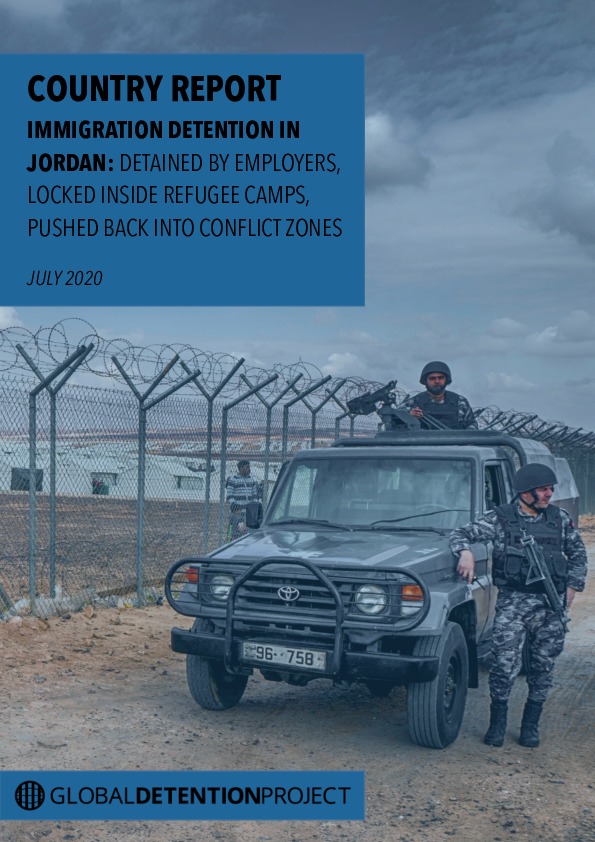On Monday 19th September, the GDP’s Türkiye-based partner – the International Refugee Rights Association (IRRA) – delivered a virtual presentation at the 35th Session of the UN Committee on the Protection of the Rights of All Migrant Workers and Members of their Families. This oral submission drew the committee’s attention to Türkiye’s laws and practices […]
MENA
TÜRKIYE: Joint Submission to the Committee on the Protection of the Rights of All Migrant Workers and Members of their Families
Together with the International Refugee Rights Association, the GDP has submitted information to the Committee on Migrant Workers concerning Türkiye’s immigration detention laws and practices. In particular, the submission highlights reports of ill-treatment and limited access to health care; the detention of vulnerable groups; and the treatment of migrants identified as Yabancı Terörist Savaşçı. […]

The GDP and Migrant-Rights Submit Freedom of Information Requests to Government Agencies in UAE
On 21 June 2022, the GDP and Migrant-Rights.org submitted freedom of information requests regarding immigration detention practices to UAE’s Ministry of Interior; Judicial Department (Human Rights Office); Federal Authority for Government Human Resources; Ministry of Human Resources Emiratisation; and Statistics Center. In particular, we requested the following information: The GDP and Migrant-Rights.org did not receive a response […]

The GDP and Migrant-Rights Submit Freedom of Information Requests to Government Agencies in Saudi Arabia
On 21 June 2022, the GDP and Migrant-Rights.org submitted freedom of information requests regarding immigration detention practices to Saudi Arabia’s Ministry of Interior (General Department of Expatriate Affairs), General Authority for Statistics, and Ministry of Human Resources and Social Development. In particular, we requested the following information: The GDP and Migrant-Rights.org did not receive a response from […]

The GDP and Migrant-Rights Submit Freedom of Information Requests to Government Agencies in Qatar
On 21 June 2022, the GDP and Migrant-Rights.org submitted freedom of information requests regarding immigration detention practices to Qatar’s Ministry of Administrative Development, Labour and Social Affairs; Planing and Statistics Authority; and Ministry of Interior (including its Legal Affairs Department; General Directorate of Civil Defence – Administrative Affairs Department; and General Directorate of Coasts and Borders Security […]

The GDP and Migrant-Rights Submit Freedom of Information Requests to Government Agencies in Kuwait
On 21 June 2022, the GDP and Migrant-Rights.org submitted freedom of information requests regarding immigration detention practices to Kuwait’s Central Statistical Bureau, Ministry of Social Affairs and Work, the Public Authority for Manpower, and Talha Deportation Prison (Ministry of Interior). In particular, we requested the following information: The GDP and Migrant-Rights.org did not receive a response from […]

The GDP and Migrant-Rights Submit Freedom of Information Requests to Government Agencies in Bahrain
On 21 June 2022, the GDP and Migrant-Rights.org submitted freedom of information requests regarding immigration detention practices to Bahrain’s Ministry of Interior, Ministry of Labour and Social Development, and National Institution for Human Rights. In particular, we requested the following information: The GDP and Migrant-Rights.org did not receive a response from any of the agencies. […]

NEWSLETTER: Welcoming new GDP team members; UNHCR Afghan Non-Removal Advisory; Immigration detention in Morocco, Zimbabwe, UK and more
The GDP’s Summer 2021 Newsletter: including the latest on detention in Morocco, Zimbabwe, and the UK; welcoming new colleagues, and more… […]

NEWSLETTER: U.S. Summary Deportations of Children to Mexico; Detention in Azerbaijan; Quarantine Facilities as Sites of “Detention”
The GDP’s latest research, including immigration detention laws and practices in Azerbaijan, and concerns surrounding detention issues in Niger, Paraguay, Morocco, and Singapore. […]

Immigration Detention in Jordan: Detained by Employers, Locked Inside Refugee Camps, Pushed Back into Conflict Zones
Jordan has long played an important role in hosting refugees from neighbouring Arab states and has the second-largest share of refugees per capita worldwide. Although the country has at times been praised for its reception practices, arrests, forced deportations—including into the Syrian conflict zone—and poor conditions of detention remain critical concerns. […]




